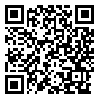1. Seligman ME, Csikszentmihalyi M. Positive psychology: An introduction. American Psychological Association; 2000 Jan.
2. Cole K. Well-being, psychological capital, and unemployment. Journal of Health psychology. 2002;33(3):122-39.
3. Goldsmith AH, Veum JR, Darity Jr W. Unemployment, joblessness, psychological well-being and self-esteem: Theory and evidence. The Journal of Socio-Economics. 1997 Jan 1;26(2):133-58.
4. Veenhoven R. Healthy happiness: Effects of happiness on physical health and the consequences for preventive health care. Journal of happiness studies. 2008 Sep 1;9(3):449-69.
5. Steptoe A, Deaton A, Stone AA. Subjective wellbeing, health, and ageing. The Lancet. 2015 Feb 14;385(9968):640-8.
6. Krieger T, Zimmermann J, Huffziger S, Ubl B, Diener C, Kuehner C, Holtforth MG. Measuring depression with a well-being index: further evidence for the validity of the WHO Well-Being Index (WHO-5) as a measure of the severity of depression. Journal of affective disorders. 2014 Mar 1;156:240-4.
7. Ryff CD, Keyes CL. The structure of psychological well-being revisited. Journal of personality and social psychology. 1995 Oct;69(4):719
8. Ryff CD, Singer B. The contours of positive human health. Psychological inquiry. 1998 Jan 1;9(1):1-28.
9. Brunstein JC, Heckhausen H. Achievement motivation. InMotivation and action 2018 (pp. 221-304). Springer, Cham.
10. Brunstein JC, Maier GW. Implicit and self-attributed motives to achieve: Two separate but interacting needs. Journal of personality and social psychology. 2005 Aug;89(2):205.
11. Avey JB, Patera JL, West BJ. The implications of positive psychological capital on employee absenteeism. Journal of Leadership & Organizational Studies. 2006 Dec;13(2):42-60
12. Newman A, Ucbasaran D, Zhu FE, Hirst G. Psychological capital: A review and synthesis. Journal of Organizational Behavior. 2014 Feb;35(S1):S120-38.
13. Luthans F, Youssef CM, Avolio BJ. Psychological capital: Developing the human competitive edge. Oxford: Oxford University Press; 2007.
14. Roche M, Haar JM, Luthans F. The role of mindfulness and psychological capital on the well-being of leaders. Journal of occupational health psychology. 2014 Oct;19(4):476.
15. Luthans F, Stajkovic AD. Reinforce for performance: The need to go beyond pay and even rewards. Academy of Management Perspectives. 1999 May 1;13(2):49-57.
16. Wood AM, Joseph S, Linley PA. Coping style as a psychological resource of grateful people. Journal of Social and Clinical Psychology. 2007 Nov;26(9):1076-93.
17. Erez A, Judge TA. Relationship of core self-evaluations to goal setting, motivation, and performance. Journal of applied psychology. 2001 Dec;86(6):1270.
18. Judge TA, Bono JE. Relationship of core self-evaluations traits—self-esteem, generalized self-efficacy, locus of control, and emotional stability—with job satisfaction and job performance: A meta-analysis. Journal of applied Psychology. 2001 Feb;86(1):80.
19. Parker CP, Baltes BB, Young SA, Huff JW, Altmann RA, Lacost HA, Roberts JE. Relationships between psychological climate perceptions and work outcomes: a meta‐analytic review. Journal of Organizational Behavior: The International Journal of Industrial, Occupational and Organizational Psychology and Behavior. 2003 Jun;24(4):389-416.
20. Baron RA, Franklin RJ, Hmieleski KM. Why entrepreneurs often experience low, not high, levels of stress: The joint effects of selection and psychological capital. Journal of management. 2016 Mar;42(3):742-68.
21. Weiner IB, Tennen HA, Suls JM. Handbook of Psychology, Personality and Social Psychology. John Wiley & Sons; 2012 Oct 16.
22. McCrae RR, Costa PT. Personality in adulthood: A five-factor theory perspective. Guilford Press; 2003.
23. Bellak L, Crawford P, Gediman HK, Hurvich M, Jacobs D. Ego functions in schizophrenics, neurotics, and normals. 1973.
24. Luthans F, Vogelgesang GR, Lester PB. Developing the psychological capital of resiliency. Human Resource Development Review. 2006 Mar;5(1):25-44.
25. Odaci H. Academic self-efficacy and academic procrastination as predictors of problematic internet use in university students. Computers & Education. 2011 Aug 1;57(1):1109-13.
26. Antony J. Adolescent Self-Concept and Achievement Motivation: A Critical Analysis. JOURNAL OF SOCIAL WORK EDUCATION AND PRACTICE. 2017 Oct 1;2(4):25-35.
27. Khan A, Alam S. Self-Concept in Relation to Achievement Motivation of High School Students. The International Journal of Indian Psychology. 2015;2(4):62-71.
28. Luthans F, Avolio BJ, Avey JB, Norman SM. Positive psychological capital: Measurement and relationship with performance and satisfaction. Personnel psychology. 2007 Sep;60(3):541-72.
29. Connor KM, Davidson JR. Development of a new resilience scale: The Connor‐Davidson resilience scale (CD‐RISC). Depression and anxiety. 2003 Sep;18(2):76-82.
30. Andrews G, Singh M, Bond M. The Defense Style Questionnaire. Journal of Nervous and mental Disease. 1993 Apr.
31. Carver CS, Scheier MF, Weintraub JK. Assessing coping strategies: a theoretically based approach. Journal of personality and social psychology. 1989 Feb;56(2):267.
32. Lindfors P, Berntsson L, Lundberg U. Factor structure of Ryff’s psychological well-being scales in Swedish female and male white-collar workers. Personality and individual differences. 2006 Apr 1;40(6):1213-22.
33. Reeder MC. The Role of Trait Achievement Motivation and Ability in Predicting Academic Performance Trajectories. Michigan State University. Psychology; 2010/
34. Ryff CD. Happiness is everything, or is it? Explorations on the meaning of psychological well-being. Journal of personality and social psychology. 1989 Dec;57(6):1069.
35. Singh S, Mansi J. Psychological capital as predictor of psychological wellbeing. Journal of the Indian Academy of Applied Psychology. 2009;35(2):233-8.
36. Avey JB, Luthans F, Smith RM, Palmer NF. Impact of positive psychological capital on employee well-being over time. Journal of occupational health psychology. 2010 Jan;15(1):17.
37. Yu X, Lau JT, Mak WW, Cheng Y, Lv Y, Zhang J. A pilot theory–based intervention to improve resilience, psychosocial well-being, and quality of life among people living with HIV in rural China. Journal of sex & marital therapy. 2014 Jan 1;40(1):1-6.
38. Markstrom CA, Sabino VM, Turner BJ, Berman RC. The psychosocial inventory of ego strengths: Development and validation of a new Eriksonian measure. Journal of youth and adolescence. 1997 Dec 1;26(6):705-32.
39. Markstrom CA, Marshall SK. The psychosocial inventory of ego strengths: Examination of theory and psychometric properties. Journal of adolescence. 2007 Feb 1;30(1):63-79.
40. Sharma R. Ego-strength in relation to adjustment of college-going students.
41. Freeman DM. The contribution of faith and ego strength to the prediction of GPA among high school students (Doctoral dissertation, Virginia Tech).







